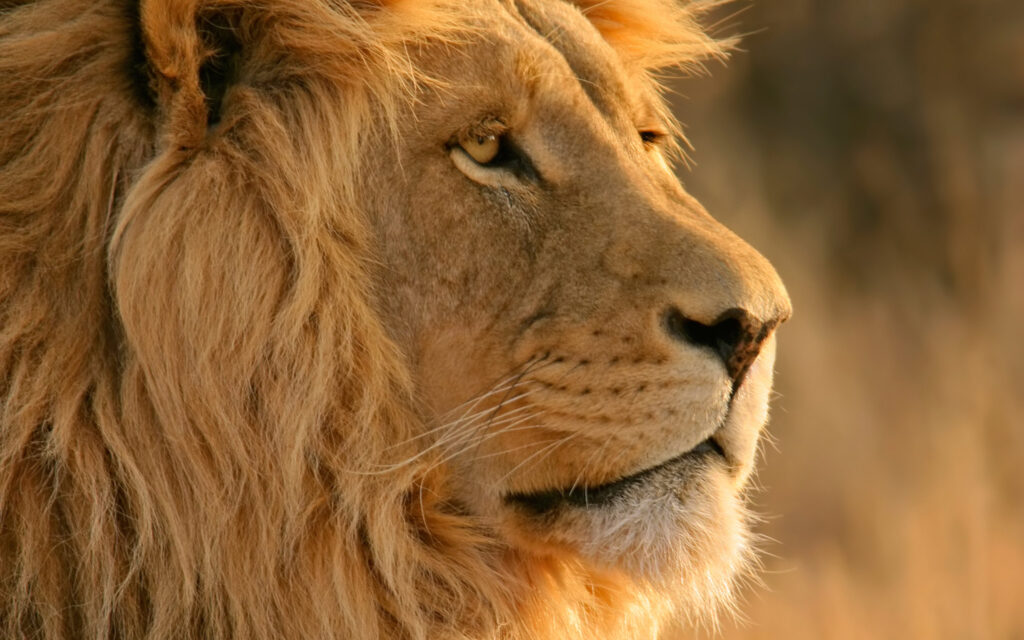This article was originally published in The Hill.
Cyril Christo recently sounded a passionate call for lion conservation amidst the decline of this iconic species. We share Christo’s enchantment with the lion and the African wilderness. We, too, want future generations to live in a world with lions and other wildlife and share the belief that the conservation of wildlife should benefit the people living alongside them. However, we believe the role of trophy hunting is not nearly as negative as Christo fears.
As in the United States, hunting has long played a major role in funding and protecting wild places and wildlife in Africa, including threatened species such as lions. While lions have disappeared from more than 90 percent of their historic range, the global conservation authority IUCN confirms that trophy hunting is not a major threat to the big cats. Rather, lions are primarily threatened by habitat loss, livestock encroachment, loss of wild prey, and conflict with people wanting to protect their lives and livelihoods.
Trophy hunting can play a major role in mitigating these key threats. Financial and other benefits from trophy hunting incentivize land-owners to maintain habitat and wildlife populations. Mapping in late 2019 revealed that more of the lion’s range was protected under hunting areas than in National Parks.
Trophy hunting is not a panacea, however, particularly in areas with poor governance. Poorly managed trophy hunting can threaten local lion populations. Equally, well-managed trophy hunting can benefit lion populations, as seen on conservancies in Zimbabwe and Namibia, the only two African countries with increasing wild lion populations.
The potential benefits of trophy hunting are well demonstrated in Coutada 11, a hunting area in Mozambique where after decades of absence, the roar of the lion is once again being heard. More than two decades of limited trophy hunting has allowed hunting operator Mark Haldane to fund habitat conservation and anti-poaching efforts that have nursed Coutada 11 back to health after Mozambique’s protracted war. The number of sable antelope has increased by more than 6,000 percent and the African buffalo grew 16 fold to more than 20,000 animals. Haldane has now reintroduced two prides of lions to the area, not for lion hunting, but to help keep growing game populations in check. In the process, they expanded the range of the African lion by 2.5 million acres, an achievement on par with the reintroduction of wolves to Yellowstone National Park.
The success in Coutada 11 is just one example of what will be lost should trophy hunting be banished as a conservation option, as some are demanding and which legislation like the CECIL Act would facilitate. Indeed, a peer-reviewed study emanating from the University of Pretoria found that should trophy hunting cease, wildlife conservation would no longer be an economically competitive land use on more than 14 million acres of wildlands in Mozambique, Tanzania and Zambia. Restrictions imposed by the U.S. on the importation of lion trophies from Tanzania are already bearing this prediction out as hunting blocks are abandoned and habitat loss increases.
Authors like Christo call for alternatives, and we would welcome them. However, the simple fact is that economically viable alternatives do not currently exist for most African hunting blocks which often have naturally low densities of wildlife, and are too remote, dangerous, and unattractive for photo-tourism. Should hunting be abandoned without better alternatives in place, the likelihood is that land will be converted to agriculture, prey populations will decline and conflicts with people will increase. Illegal lion killings, particularly from human-lion conflict, are estimated to be around 5-10 times higher, and in some areas 50-100 times higher, than the level that would be permitted under trophy hunting. The widespread use of snares and poison means these killings are indiscriminate, removing cubs, females and young males with devastating impacts on lion populations. Those deaths won’t be on social media but will have very real consequences for lion conservation and welfare.
Opposition to trophy hunting is based on concern for wildlife conservation and is often well-intentioned. However, we should take the time to separate facts from propaganda and listen to scientists and stakeholders to avoid prioritizing emotions over evidence. If we do not, we could inadvertently worsen the situation for both wildlife and rural communities and create the very conservation catastrophe that we are all desperate to avoid.
Dr. Amy Dickman, senior research fellow with the Wildlife Conservation Research Unit at the University of Oxford, contributed to this article.




